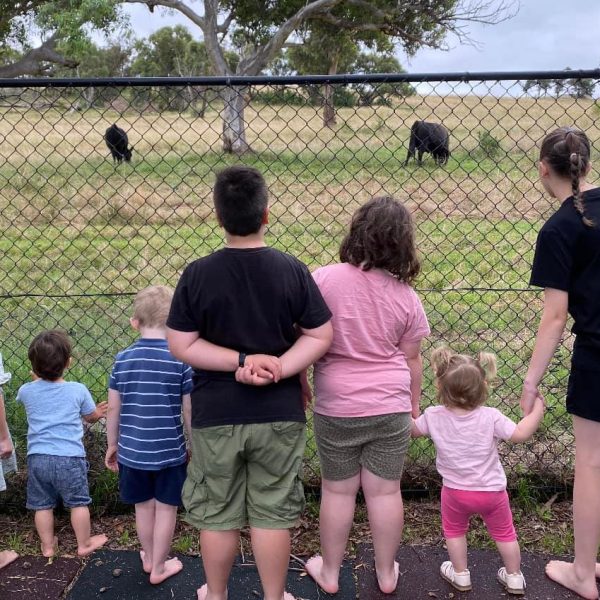Canadian researchers explore the multifaceted role of family day care in ECEC

Canadian family day care (FDC) educator Laura Woodman is such a passionate advocate for the FDC sector that she is undertaking PhD studies into the field, hoping to learn more about the experiences of day home educators (as they are called in Canada).
Ms Woodman is conducting the work to earn a PhD in human ecology through the Faculty of Agricultural, Life and Environmental Sciences at the University of Alberta.
Having operated an FDC service for more than 10 years, caring for a small group of children every day, Ms Woodman said she thrived on the deep relationships she was able to form with children and families, but that there were also challenges in working alone, and juggling the man daily tasks required when working with young children.
Unlike long day care (LDC) services, where there are multiple staff members to share the load, she said, FDC educators have a much more “multifaceted” role.
“We provide child care, program planning for children of mixed ages, menu planning; we’re the chefs, the janitors, the administrators and the business owners,” she continued.
Ms Woodman hopes her research will raise awareness of the complexity of FDC professionals and the work they do, and to garner more support to help them thrive.
“As single operators they need to be better understood and supported in the child care system,” she said.
In her experience, because FDC educators take care of smaller numbers of children, and work from their homes, “they tend to be seen as less important.”
“FDC homes are a distinctly different service model, so trying to shoehorn them into a daycare centre-based model is not going to work,” she added.
The gap in understanding what these special educators face, Ms Woodman continued, is concerning, and could discourage Canadian educators from becoming formally registered and licenced through day home agencies, which she believes is crucial to providing good quality care.
“The quality of care is generally higher because they are required to meet government regulations to maintain certain professional standards, including first aid training, monthly fire drills and maintaining paperwork for things like medication. There is oversight to ensure safe environments for the children.”
Currently in Canada, the only requirement for providers of unlicensed or private day homes is that educators can only educate and care for a maximum of six children under six years of age, in addition to their own children.
Private day homes are only monitored in the event that a complaint is made – for example, when there are imminent child welfare, health or safety concerns.
“There is no monitoring and little to no support,” Ms Woodman added.
Not making room for the unique needs of family day homes could also have implications for many of the licensed child care spaces being created through the recent early learning and child care agreements in Canada, Ms Woodman believes.
“The goal is to increase access to quality, affordable child care, and in many places, including Alberta, those spaces are aimed at family day homes because in rural or remote areas, the populations are often too small to support an entire daycare centre.”
“But creating more spaces in a system that isn’t designed to meet the needs of day home educators won’t provide sustainable care. If they don’t have enough support, they are going to struggle and ultimately could close.”
Any long term solution in this space, she continued, would have to involve support systems which had a focus on the specific needs of family day home educators.
To help fill these knowledge gaps, Ms Woodman recently wrote a discussion paper, drawing on existing research and her own experiences, to explore current challenges facing family day home educators.
One of the critical challenges which she identified was a sense of guilt and worry if the educators had to step away from their service for illness, professional development or personal leave.
“They feel guilty about letting families down. And it’s really stressful for them to feel they have to work all the time. The more stress they feel, the lower their ability is to meet a child’s needs.”
Other challenges identified were low wages and funding, a sense of isolation and lack of opportunities for professional development. The level of support provided to educators by their approved providers also varied widely, Ms Woodman notes.
While approved providers are required by government regulations to offer in-home support visits from a consultant, and continuing education opportunities such as workshops or conferences on a regular basis, day home educators are often left disappointed, she said.
Ms Woodman is currently gathering information from licensed and unlicensed family day home educators via a survey, to better represent their needs in her work, and hopes that her research will “build information at every level of the system” to guide decision-making by family day home educators and the agencies, governments and parents that support them.
“If we are building a system that relies on family day home educators, especially to provide services in child care deserts like rural and remote areas, we need to start amplifying their voices so they can look after themselves and offer quality care.”
Popular

Quality
Practice
Provider
Research
Workforce
Honouring the quiet magic of early childhood
2025-07-11 09:15:00
by Fiona Alston

Quality
Practice
Provider
Research
Taking a leap: Why risky play matters
2025-07-15 09:53:58
by Fiona Alston

Quality
Practice
Provider
Research
Brisbane’s youngest athletes get into the Olympic spirit at Bush Kindy event
2025-07-15 09:00:51
by Fiona Alston











